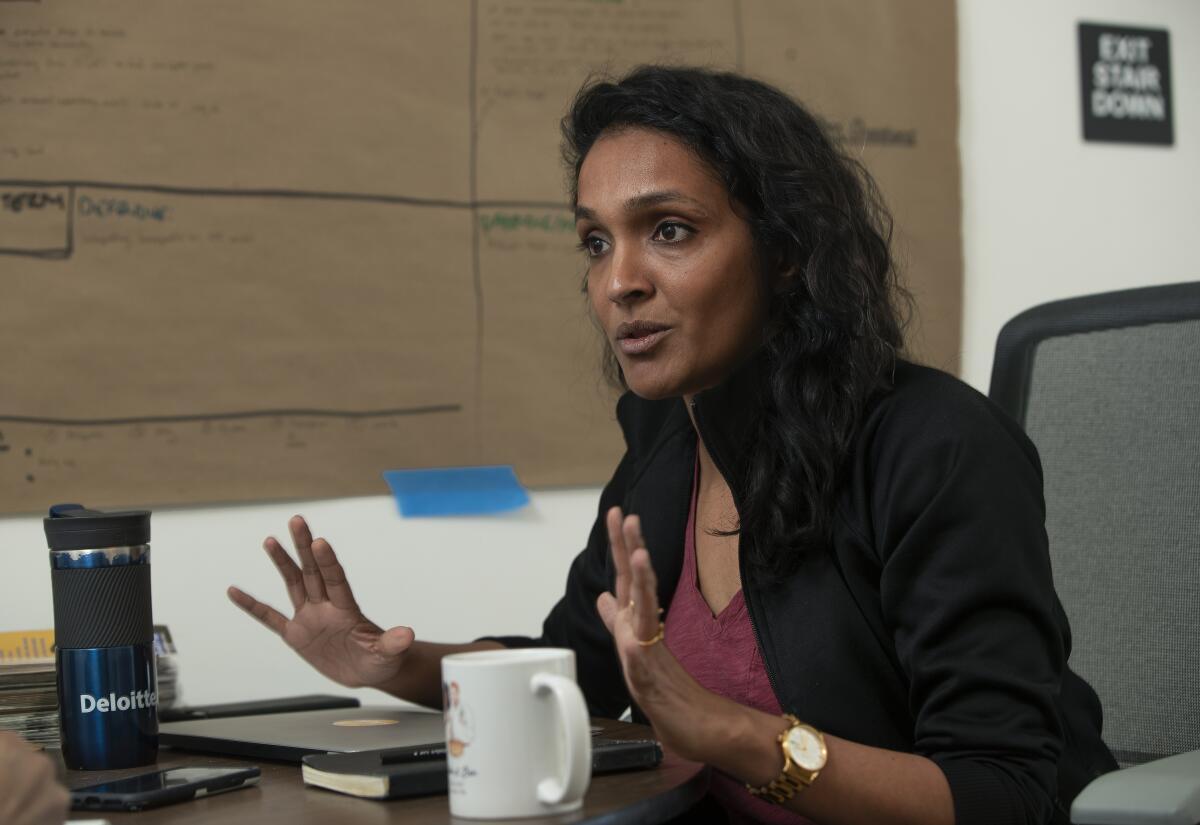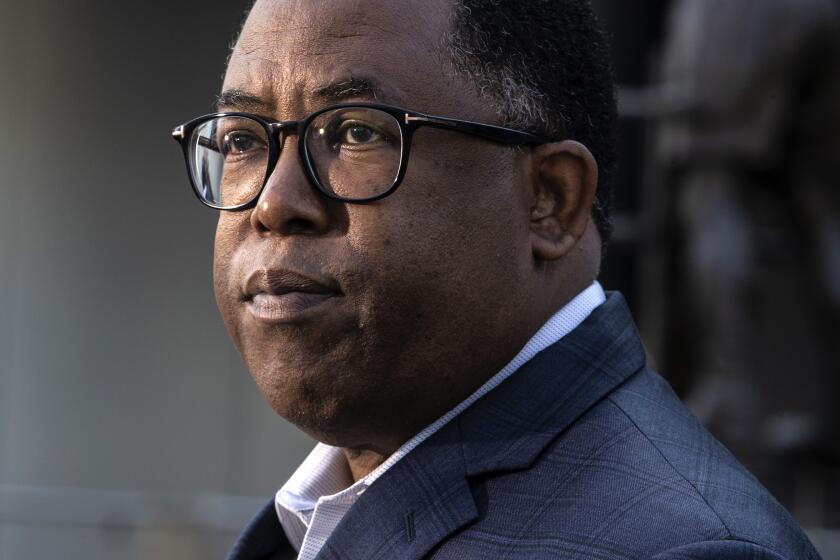L.A. Councilwoman Nithya Raman could lose 40% of her district under new redistricting plan

- Share via
A Los Angeles City Council committee prepared a new map of the council’s 15 districts Friday, one that would make major changes to the Hollywood Hills district represented by Councilwoman Nithya Raman.
On a 6-1 vote, the ad hoc redistricting committee recommended that Raman’s district stretch from Silver Lake to the west San Fernando Valley, taking in parts of Encino and Reseda.
Raman cast the lone dissenting vote, saying her district was undergoing far more drastic changes than any of the others. She said the proposal would cause her district to lose about 40% of its constituents — and was the end product of “an overtly politicized process” that had left many residents in the dark.
“This outcome was not inevitable, and it is only because of the advocacy of our constituents that we were able to retain as much of [the district] as we did,” she said in a statement.
Raman had asked her colleagues early in the meeting to take up an alternate map, developed by her office, which would have allowed her to preserve more of Hollywood and the Park La Brea area. None of her colleagues agreed to second her motion, and the proposal did not come up for a vote.
Under the committee’s proposal, Raman’s district would lose such neighborhoods as Hancock Park, Miracle Mile, Park La Brea, Toluca Lake and portions of Mid-City and the Hollywood flats. She would retain Sherman Oaks, Los Feliz, the Hollywood Hills and part of Silver Lake.
Raman’s district also would take on part of Studio City. Raman, who has been in office for nearly a year, said in a statement that she is “overjoyed” to meet her new constituents. “You can expect me at your door in the new year!” she said.
Los Angeles redraws its political boundaries every 10 years, following the release of U.S. census data. To comply with the law, each district must have roughly the same number of constituents.
Without a voting member on the L.A. City Council, residents in the 10th District are voiceless in local government. Some insist it’s voter suppression.
The committee’s proposal heads to the City Council on Tuesday. Public hearings on the plan will take place Wednesday and Nov. 23, followed by a council vote Dec. 1, according to a timetable provided to the committee.
For weeks, Raman and Councilman Paul Krekorian had been fighting a redistricting proposal from a 21-member citizens commission that would have forced one of them to represent a significantly redrawn district and the other to take on an area that’s 100% new to them. Both had argued that such drastic changes would disenfranchise their constituents.
Under the new proposal, Krekorian would see much of his East Valley district stay the same, retaining all or part of North Hollywood, Valley Village and Valley Glen. Councilman Bob Blumenfield, in turn, would keep much of his West Valley district, including Woodland Hills, Canoga Park and Tarzana.
The council committee’s redistricting proposal is based partly on the plan prepared by the citizens commission and partly on a map submitted last month by a Latino labor organization.
The committee’s “hybrid” plan would leave three districts in South Los Angeles, a coastal district represented by Councilman Mike Bonin and a harbor district represented by Councilman Joe Buscaino largely unchanged.
The committee voted 6 to 1 on Friday to reject the commission’s recommendation to place Exposition Park, including the Los Angeles Memorial Coliseum, in the district represented by Councilman Marqueece Harris-Dawson.
Harris-Dawson and Councilman Curren Price have been at odds for weeks over the fate of both Exposition Park and neighboring USC. If the council concurs with the committee’s action, Exposition Park would remain in Price’s district.
Council President Nury Martinez, who chaired the council committee, said the new map made “necessary changes” to the commission’s redistricting proposal while achieving certain goals, such as keeping Koreatown in a single district.
Martinez said the hybrid map incorporated some of the changes requested by Raman. She also argued that the alternate proposal floated by Raman would have “split the Jewish community.”
“We did our best to keep communities whole,” Martinez said.
An aide in Raman’s office disputed that assertion, saying the alternate map was in fact designed to keep Jewish communities together. The alternate map, said spokeswoman Stella Stahl, would have kept Encino, one of the city’s largest Jewish communities, connected to other Jewish neighborhoods south of the Hollywood Hills.
More to Read
Sign up for Essential California
The most important California stories and recommendations in your inbox every morning.
You may occasionally receive promotional content from the Los Angeles Times.












